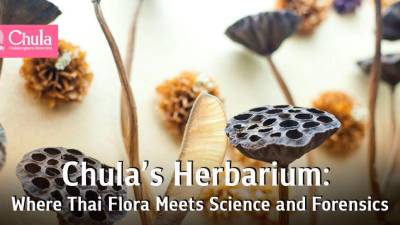KUALA LUMPUR: The Professor Kasin Suvatabhandhu Herbarium (BCU) at Chulalongkorn University plays a crucial role in plant research and identification in Thailand.
Operated by the Department of Botany, the herbarium has become a key resource for academic and forensic applications.
Parinyanoot Klinratana, a Chulalongkorn University Science Service Officer, explained how plant materials from crime scenes are analysed to trace their origins.
The herbarium has assisted law enforcement by identifying whether plant evidence came from restricted areas.
It also helped the Customs Department track shallot species, demonstrating its practical utility beyond academia.
With over 20,000 specimens, the collection supports biodiversity studies and industries like food and pharmaceuticals.
The herbarium aids in detecting invasive species and provides critical data for forensic investigations.
Its work highlights how plant materials can serve as evidence in criminal cases or environmental assessments.
By maintaining a national plant database, the herbarium supports Thailand’s conservation efforts and regulatory compliance.
The facility bridges science and society through collaborations with government and private sectors.
Accurate plant taxonomy ensures the herbarium’s findings are reliable for research and legal applications.
Its multidisciplinary approach benefits fields ranging from medicine to environmental policy.
The herbarium exemplifies how botanical science can address real-world challenges while preserving biodiversity. – Bernama
